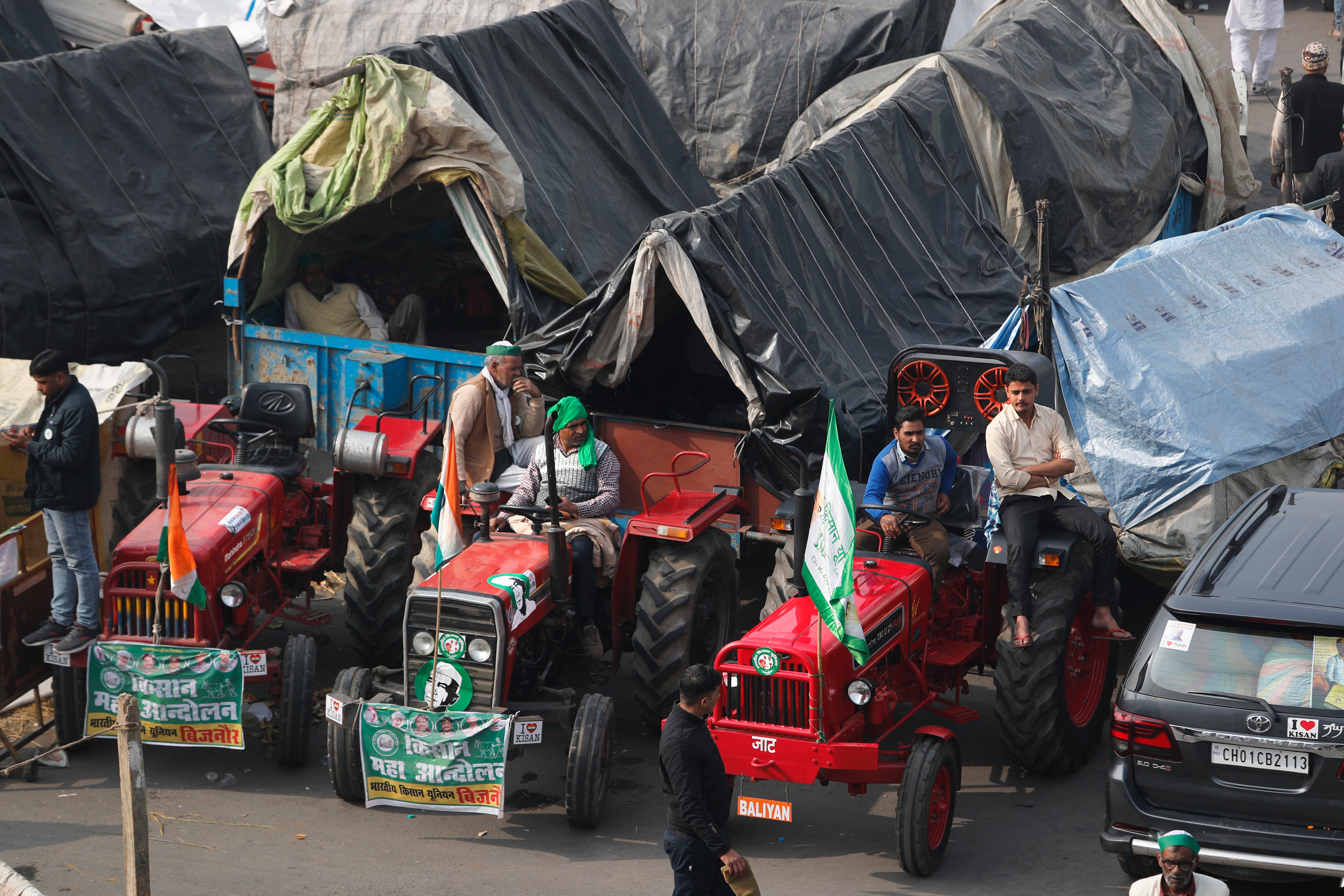Angry Indian farmers prepare for massive Republic Day rally
Thousands of tractors are lining up on the outskirts of New Delhi, ready to swarm the Indian capital in a protest against new agriculture reform laws that have triggered a growing farmer rebellion that has rattled the government

Your support helps us to tell the story
From reproductive rights to climate change to Big Tech, The Independent is on the ground when the story is developing. Whether it's investigating the financials of Elon Musk's pro-Trump PAC or producing our latest documentary, 'The A Word', which shines a light on the American women fighting for reproductive rights, we know how important it is to parse out the facts from the messaging.
At such a critical moment in US history, we need reporters on the ground. Your donation allows us to keep sending journalists to speak to both sides of the story.
The Independent is trusted by Americans across the entire political spectrum. And unlike many other quality news outlets, we choose not to lock Americans out of our reporting and analysis with paywalls. We believe quality journalism should be available to everyone, paid for by those who can afford it.
Your support makes all the difference.Thousands of tractors lined up on the outskirts of New Delhi on Monday, ready to swarm the Indian capital in a protest against new agriculture reform laws that have triggered a growing farmer rebellion that has rattled the government.
Tens of thousands of farmers have been blocking key highways connecting New Delhi with the country’s north for almost two months demanding a complete withdrawal of the laws. They plan to parade through the capital in a massive tractor rally on Tuesday, when India celebrates Republic Day.
The government “thought they would easily implement these laws and only a small amount of farmers would protest against it. But they had no idea that the entire country would come and occupy the borders of the capital," said Shailendra Choudhary, a farmer who traveled from Bijnor, a town in central Uttar Pradesh state.
Farmers say the legislation passed by Parliament last September will lead to the cartelization and commercialization of agriculture, make farmers vulnerable to corporate greed and devastate their earnings.
Prime Minister Narendra Modi s government insists the laws will benefit farmers and boost production through private investment.
Representatives of the government and farmers have failed to make progress in repeated negotiations over the farmers’ core demand that the laws be scrapped. The government has refused, but says it could make some amendments and suspend implementation of the legislation for 18 months.
Farmers insist they will settle for nothing less than a complete repeal.
A coalition of farmers’ unions urged participants to refrain from violence in Tuesday's tractor protest.
“Remember, our aim is not to conquer Delhi, but to win over the hearts of the people of this county,” Samyukta Kisan Morcha, or United Farmers’ Front, said in a statement.
Many of the protesting farmers are from the northern states of Punjab and Haryana, two of India’s largest agricultural areas. But the protests on the capital's outskirts — the biggest in years — have resonated with people elsewhere in the country.
In southwestern Maharashtra state, thousands of farmers joined a sit-in at a sports ground in Mumbai on Monday.
“I am opposed to these black laws introduced by Modi. They will spell doom for the farming community," said K. Prakash, a farmer who joined the sit-in with his family.
A day before, farmers in Maharashtra paraded on tractors and cars while waving flags of farmer unions and shouting slogans against Modi. Some rode in bullock carts or walked on foot for miles (kilometers).
Modi has tried to allay farmers’ fears about the legislation while dismissing their concerns. Some leaders of his party have called the farmers “anti-national,” a label often given to those who criticize Modi or his policies. Modi has repeatedly accused opposition parties of agitating the farmers by spreading rumors.
Farmers have long been seen as the heart and soul of India, and agriculture supports more than half of the country’s 1.4 billion people. But their economic clout has diminished over the last three decades. Once accounting for a third of India’s gross domestic product, farmers now account for only 15% of the country’s $2.9 trillion economy.
More than half of farmers are in debt, with 20,638 killing themselves in 2018 and 2019, according to the National Crime Records Bureau. Many factors are believed to contribute to the suicides, including poor crop yields, expensive farm chemicals and usurious money lenders.
___
Rafiq Maqbool in Mumbai and Rishabh R. Jain in New Delhi contributed to this report.